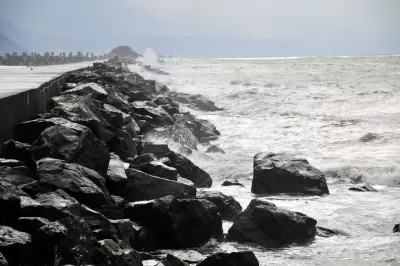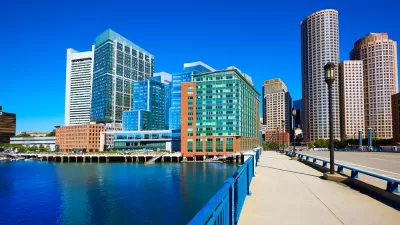U.S. coastal cities need to prepare for the effects of climate change, but the pot of funding is limited. There’s no way around the fact that there will be winners and there will be losers.

"As disaster costs keep rising nationwide, a troubling new debate has become urgent: If there’s not enough money to protect every coastal community from the effects of human-caused global warming, how should we decide which ones to save first?" writes Christopher Flavelle.
A new estimate finds that $42 billion will be needed to provide basic measures to protect cities with populations greater than 25,000 people by 2040. Including smaller cities with fewer than 25,000 residents raises the cost to $400 billion.
The funding needed will likely exceed what is available, and the federal government will face the inevitable task of determining which cities to save. The decision could be based on which investments will provide the best return. Another possibility would be to rank cities based on factors such as property values, historical and cultural significance, and contributions to the national economy, says Flavelle.
FULL STORY: With More Storms and Rising Seas, Which U.S. Cities Should Be Saved First?

Alabama: Trump Terminates Settlements for Black Communities Harmed By Raw Sewage
Trump deemed the landmark civil rights agreement “illegal DEI and environmental justice policy.”

Study: Maui’s Plan to Convert Vacation Rentals to Long-Term Housing Could Cause Nearly $1 Billion Economic Loss
The plan would reduce visitor accommodation by 25% resulting in 1,900 jobs lost.

Planetizen Federal Action Tracker
A weekly monitor of how Trump’s orders and actions are impacting planners and planning in America.

Restoring Northern India’s Himalayan ‘Water Temples’
Thousands of centuries-old buildings protect the region’s natural springs and serve as community wells and gathering places.

Milwaukee to Double Bike Share Stations
Bublr Bikes, one of the nation’s most successful, will add 500 new e-bikes to its system.

DC Extends Application Window for Outdoor Dining Permits
District restaurants will have until the end of November to apply, but businesses with permits in rush hour parking lanes must end operations on July 31.
Urban Design for Planners 1: Software Tools
This six-course series explores essential urban design concepts using open source software and equips planners with the tools they need to participate fully in the urban design process.
Planning for Universal Design
Learn the tools for implementing Universal Design in planning regulations.
Caltrans
Smith Gee Studio
Institute for Housing and Urban Development Studies (IHS)
City of Grandview
Harvard GSD Executive Education
Toledo-Lucas County Plan Commissions
Salt Lake City
NYU Wagner Graduate School of Public Service





























